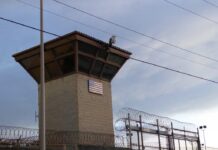CAIRO (AP) – A tanker carrying badly needed fuel arrived in Yemen’s blockaded port of Hodeida yesterday, as a cease-fire meant to stop the fighting in the war-torn country for two months entered its first full day.
The truce agreement, which took effect on Saturday evening, allows for shipments of fuel to arrive in Hodeida and for passenger flights to resume from the airport in the capital of Sanaa. Both Hodeida and Sanaa are held by the Houthi rebels.
The agreement comes after a significant escalation in hostilities that saw the Houthis claim several attacks across the country’s borders, targetting the United Arab Emirates and Saudi Arabia.
Spokesman for the Houthi-run oil corporation Essam al-Motwakel said the coalition allowed the vessel – carrying mazut, a low-quality fuel oil – into the port at Hodeida. The port handles about 70 per cent of Yemen’s commercial and humanitarian imports.
He called on United Nations (UN) envoy Hans Grundberg to work with the coalition and accelerate the arrival of other vessels to ease a longtime fuel crisis in Houthi-held areas.
During the two-month truce, the coalition will allow 18 vessels carrying fuel into the port of Hodeida, and two commercial flights a week from the Yemeni capital to Jordan and Egypt, according to a copy of the truce obtained by the Associated Press.
The UN envoy has called for both sides to agree on opening roads around Taiz and other provinces, the ceasefire document said. Taiz, which remains partially held by the forces fighting on behalf of the internationally recognised government, has been blockaded by the Houthis for years.
”The success of this initiative will depend on the warring parties’ continued commitment to implementing the truce agreement with its accompanying humanitarian measures,” Grundberg said on Saturday in announcing the truce had taken effect.




















































